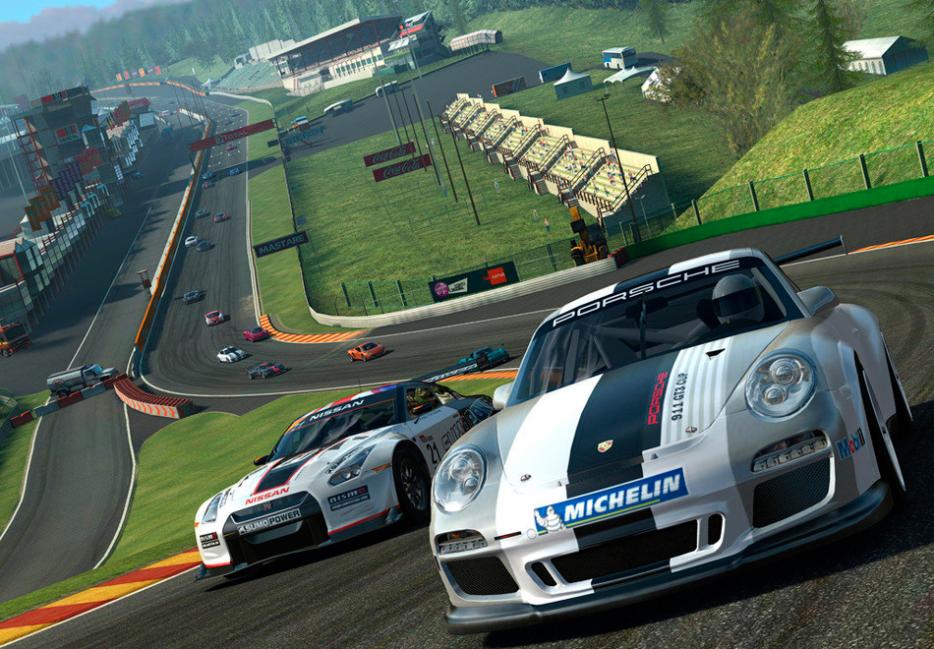That can’t be right, can it? It says here that I’ve played the mobile game Real Racing 3 for 40 hours. That’s a full work-week spent I’ve spent racing virtual cars. Staring at the figure, it is difficult not to recall The Simpsons’ Comic Book Guy who, only at the moment before being hit by a nuclear missile, realizes it’s possible there may have been more productive ways to spend his life.
Nevertheless, my guilt at that statistic and my experience playing the game seem to be two separate things. Driving a digital Porsche 911 GT3 endlessly around the same tracks has a strange hypnotic effect. The curves of the courses start to become imprinted on the mind so that, spinning through them, one feels a bit like a child being read a favourite bedtime story for the hundredth time: the familiarity is the point.
The pleasing repetitiveness makes the autonomous nervous system kick in, lulling the soul into a happy numbness, a state of reprieve from thought and worry. Playing a video game, then, becomes the virtual equivalent of going for a leisurely stroll: to steal a line from Immanuel Kant, the pleasure stems from some games’ capacity to evoke “purposiveness without purpose.” Poking mindlessly at a screen is like a balm for the overworked mind, the unconscious cadence of memorized play conjuring a kind of surprisingly productive blankness. Who needs yoga when you have the peace and mindfulness of Real Racing 3?
That counterintuitive fact is perhaps even more applicable to abstract games like old classic Tetris or current craze Dots. The latter involves connecting coloured dots into squares, and the combination of the minimalist aesthetic and retro-future sounds reminds one a bit of the addictive game from Star Trek: The Next Generation which, with each successive progression, released pleasing neurochemicals into the brain. Dots isn’t about anything except the arbitrary rules of its own creation, and because of that, it and similar games become interactive-aesthetic spaces in which the brain can just sort of... be.
What makes digital games as a cultural form so interesting is the indivisibility of their constituent parts. The aesthetic dimensions of colour, shape, sound, and music meld inextricably with the structures of interactivity so that, particularly with abstract games, it is as if one is playing with the basic elements of the arts.
It’s not, however, as if video games are therefore all akin to Jackson Pollock paintings. The confluence of those constituent parts to produce, say, objects of military fetishization or borderline misogynist tripe should be roundly critiqued. But the simple and simplistic notion that games are just a waste of time elides the idea that “wasting time” can often be very productive. It shouldn’t even need to be said, but putting oneself in a space of interacting with aesthetic objects can enliven, rather than dull, the brain.
After it was made available for free recently, I started playing Tiny Wings, a game in which you time the ascent and descent of a flight-challenged bird over an abstract two-dimensional landscape of pastel hills. On your second or third try, you get the hang of the rhythm of leading your character down in an arc and then swooping up through the sky, as the vaguely indietronica soundtrack lulls you into something like half-stupor, half-euphoria. I’m sure someone watching me might say, “oh look at him, a grown person, frittering away his time.” What they wouldn’t be able to see, however, is the sheer sense of relief: the feeling that, overwhelmed by the demands and complexities of modern life, there are few things as rejuvenating as the experience of beauty and simple sense of play.






